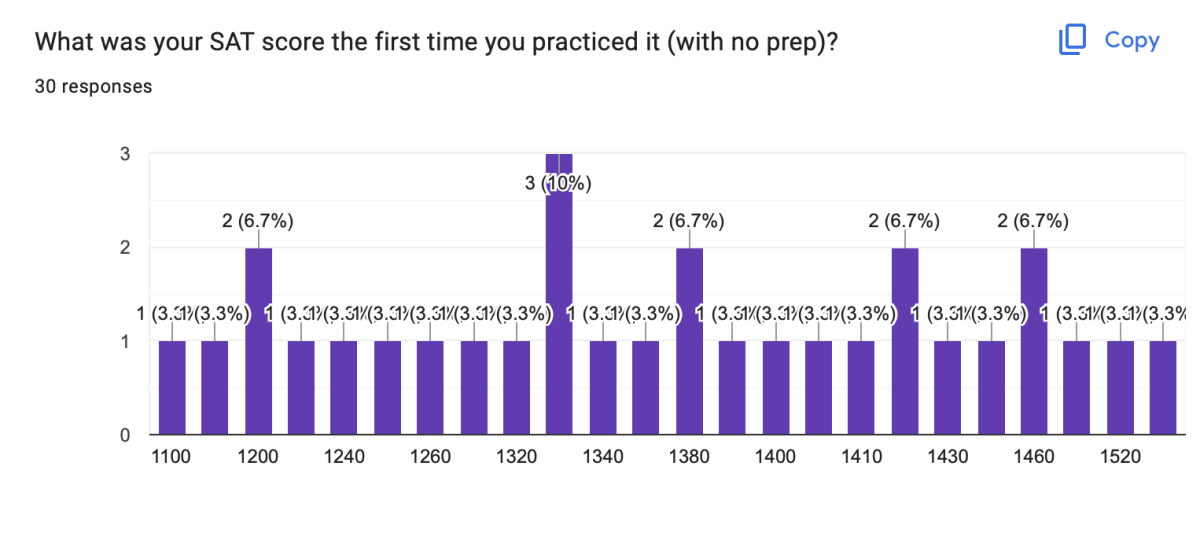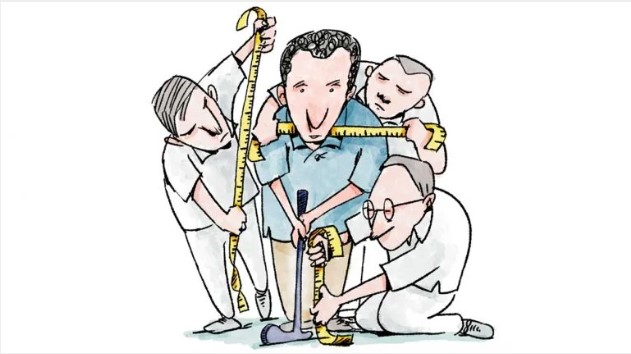It’s the peak of the season. Burdened by the struggle to maintain ranks and GPA, the players this time of year are pushed by one added factor. SATs. Arguably one of the most domineering presences ever possessed by a pamphlet of papers, written between the lines of the SAT are told to be the tellings of the rest of our lives.
With the recent Varsity Blues Scandal, where parents allegedly donated a sum of $25 million to a college consultant in exchange for illegitimate acceptance into elite schools for their children, questions have reasonably circulated regarding the correlation between student intelligence and student income.
For decades, standardized tests have been a hotly debated topic, the SAT being one of the most controversial. While I cannot argue that there are no additional factors that affect test performance, I do believe that the SAT is holistically an accurate measure of an individual student’s general range of academic intelligence. According to The Appalachian, there are two types of general intelligence: crystallized and fluid. Fluid intelligence concerns the ability to use reason in solving problems, while crystallized intelligence is centered on the ability to utilize background or second-hand knowledge. While some tests, such as the Armed Services Vocational Aptitude Battery, capture only crystallized intelligence, the SAT is used as a proxy for both.
Additionally, while SAT courses are beneficial, the gains of an average student on the SAT aren’t incredibly substantial. On average, after practice courses students taking the SAT are only expected to increase by 20 points per section. To put that into perspective, that’s only two extra questions right in four different sections, totaling only eight more correct answers compared to a student who did no prep. Often, due to the average duration and rigor of SAT courses (being that most students only prep casually for a couple of months), student test performance is largely dependent on prior student intelligence level.
In a survey of 30 high school students in Houston, out of those who did study for the SAT, it was found that on average official scores improved by only 123 points compared to original scores on practice tests. Further, amongst the 13.3 percent of participants with an average household income below 100,000 dollars, it was shown that their scores increased by around 160 points. Therefore, although scores did show improvement after practice, the average score increase was not incredibly substantial, with the average amount of practice time for each respondent being a few months.
Additionally, researchers at the University of Minnesota found that the SAT is a verifiable method of predicting both freshman year grade point averages, and also predicting a student’s overall GPA throughout the entirety of their college careers. While there is no denying that GPA is the result of an amalgamation of many other factors, such as motivation, determination, and discipline, I think that students that have a higher SAT are more prone to have all of those things. If people already have awareness of the emphasis colleges place on high student SAT scores, then reasonably, the students most driven to success would work harder to obtain those scores.
However, it is important to also acknowledge the other factors that drive advocating for non-standardized tests. Many argue that the SAT does not provide proper accommodations for students suffering from anxiety, illness, etc. This notion for the most part, however, is largely inaccurate. Although the SAT can generally do nothing for simple testing anxiety, 504s (extra time) are often issued to students with illnesses or mental disorders that hinder their testing capabilities. There are seven requirements for obtaining a 504: the diagnosis is stated clearly, information is current, the student’s full developmental and medical history is provided, functional limitations are described, accommodations are justified, and professional credentials are established. Thus, for a student who is hindered in academic performance by things such as ADHD, extra time is not difficult to obtain.
Another argument often made in favor of eliminating the SAT is the inability of low-income students to take the test repetitively. Currently, to take an SAT, the average registration fee is $60, with a $25 additional fee for changing testing location or canceling, a $35 fee for canceling the Thursday before test day, and a $30 fee for late registration. Registering for the SAT numerous times is limited by this. However, while your average “rich student” can take the SAT as many times as desired, students below a certain income are also eligible for an SAT fee waiver. Students who meet the income guidelines set by the USDA Food and Nutrition Service Income Eligibility Guidelines for 2023-24 are promised two free tests, unlimited score reports, and a waived cancellation and late registration fee.

Moreover, the SAT is a standardized test and the process of administering anything in a standardized procedure will be somewhat erroneous. However, if not for standardized processes of measuring student performance, how else can student colleges predict the ability of a student to succeed in their establishments? For the most part, the SAT serves its purpose: to accurately represent a student’s general academic intelligence.
As Rich Saunders in The Chronicle of Higher Education stated, “standardized tests can level the playing field for low-income and rural college applicants… making those tests optional may blunt that benefit.”
This is not to say that the SAT accurately represents or defines you as a person. It may aid your college acceptance results, but a low score has no absolute finality. Your future is not dependent solely on one test, and at the end of the day not all of us are inherently good test takers. It’s normal to perform poorly sometimes, but it’s unexpected to not try to perform better. College admission counselors shouldn’t be vindicated for judging us based on our scores. Although the 1600 isn’t shiny enough to warrant copious amounts of distress, it is something to look towards. If the SAT has been deemed one of the most accurate measures of high school intelligence, then maybe it’s best to stop dwelling on the unfairness of the process and use it as an incentive to ensure satisfaction with the score we end up with.









